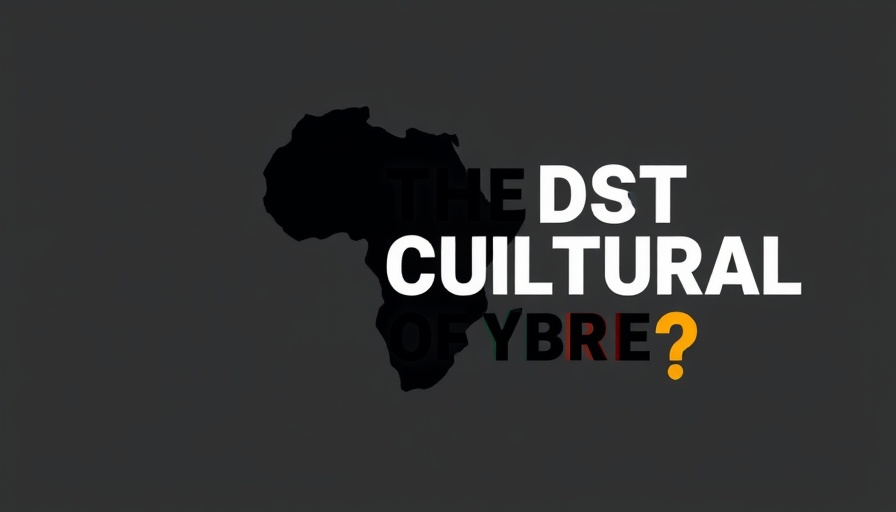
Understanding African Adventism: Debunking the Myths
The conversation surrounding African Adventism often raises questions about its authenticity and evolution within the wider Seventh-day Adventist (SDA) community. This discourse is vital as it not only shapes perceptions but affects the belonging of countless members who find their spiritual home within this denomination.
The Roots of African Adventism
African Adventism does not exist in a vacuum; it has roots that intertwine with cultural, historical, and spiritual currents that have flowed through the continent. Many members of the SDA faith community may not be aware that African Adventism emerged alongside colonial influences, adapting faith practices to fit local cultural contexts. It's important to appreciate how and why these adaptations occurred, as they reflect a genuine evolution of faith that incorporates African traditions, languages, and customs.
Breaking Down Stereotypes
One of the prevalent myths surrounding African Adventism is the notion that it is merely a derivative of Western beliefs, lacking its own theological depth. While it is true that SDA theology was initially introduced by Western missionaries, the African church has reinterpreted and contextualized these teachings to reflect the African experience. In many areas, the church has become a site for addressing contemporary issues, such as health challenges, education opportunities, and social justice, thus asserting its relevance to the local community.
Engaging with Reality: The Data Speaks
Statistical data highlights a significant transformation within African Adventism over the last few decades. An increasing number of baptisms and church plants demonstrates a vibrant faith movement that resonates with the youth. As of late, church statistics show that Africa is rapidly becoming a heartbeat of the global SDA church, spurring vital discussions about future leadership and theological education that cater to an African context.
The Role of Culture in Worship
Contrary to some misconceptions, African Adventism is not a monolithic entity; it is incredibly diverse. Worship styles vary widely across the continent, often blending traditional cultural elements with Adventist practices. This amalgamation serves to create a worship environment that feels authentic to its members. Such diversity enhances the worship experience, ensuring that it resonates deeply with congregants from different backgrounds. It draws in not just the traditionalists but also younger generations seeking to forge their own identity within the faith.
Counterarguments: Tradition vs. Modernity
While some may argue that the infusing of local culture compromises the sanctity of Adventist beliefs, this perspective overlooks the historical adaptability of religious practices. Every religious movement must evolve to remain relevant within its context. The African Adventist experience is a testimony to that flexibility. Instead of undermining faith, cultural integration enriches it, creating a vibrant tapestry of belief that can speak to both contemporary and traditional adherents.
The Way Forward: Embracing Diversity
For members of the SDA faith community, recognizing and embracing the unique aspects of African Adventism can foster a spirit of unity. Understanding the cultural expressions inherent in African worship can lead to a deeper appreciation of shared beliefs, notwithstanding the unique ways these are expressed. As the church tackles global issues—from public health to climate change—African Adventism can offer valuable insights drawn from its context.
Moving beyond Myths
In conclusion, African Adventism is much more than a myth; it is a rich, evolving narrative that deserves recognition and understanding. To ignore or belittle it is to miss out on a vital chapter in the story of the global Seventh-day Adventist movement. Members within the church are encouraged to learn, appreciate, and celebrate these diverse expressions of faith, forging connections that unite rather than divide.
As we move forward, may we strive to foster dialogue that acknowledges the depth and breadth of diversity within our faith community. This includes exploring local cultural frameworks, nurturing intergenerational relations, and being open to how our beliefs can converge and diverge in meaningful ways.
 Add Row
Add Row  Add
Add 




Write A Comment